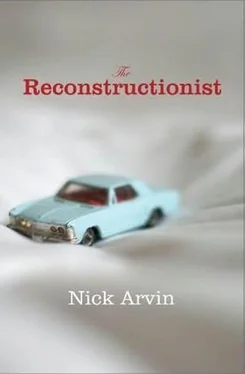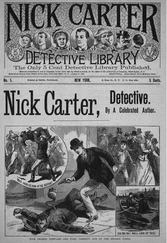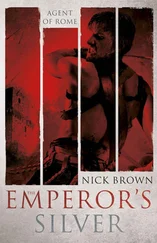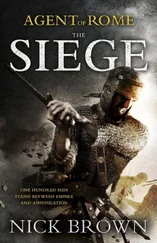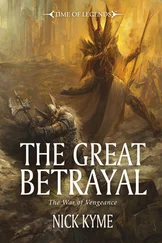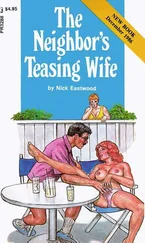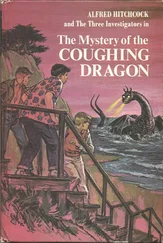He did wonder at the chances of it, because they knew of many accidents in the intersection, and yet he had never thought of it as a particularly dangerous place, never heard his parents or anyone else describe it that way. No one advised special caution there. Maybe – he thought – if one actually worked out the statistics, it would have appeared no more dangerous than an average intersection with the same traffic load. Maybe he had seen so many accidents there only because it happened to be near home. If accidents tended to occur in intersections, and that was the intersection he saw most often, he would often see accidents in that intersection. And if Christopher drove most often through that intersection, then it would be the intersection where he would be most likely to have an accident.
His mother cried unpredictably in sobs that took her like a seizure, up to and through Christopher’s funeral. But the next day she said to Ellis, ‘We have to move on,’ and she resumed old routines and sent Ellis back to school. She carried boxes into Christopher’s room and began packing the things there. Dad, however, looked ten years older, and his sense of focus – never a strength – seemed to vanish entirely. At dinner he looked at his food until it lay cold. At night, Ellis found him standing in the living room, staring at the wall. He slept until noon or later. Often, at all times of day, he wandered into Christopher’s room, looked around, then wandered out.
One day a ruined car appeared in the backyard, a thing crushed and bent across the front by enormous forces. Ellis stared at it from the kitchen window and again it took him some seconds to recognise the airlane .
He went down into the basement. His father was working sandpaper over a cylinder of wood. Ellis scuffed his foot, and his father stopped sanding but sat there considering his hand – as if it were a little machine that he was unsure about operating – before he looked at Ellis and asked, ‘What do you think?’
‘Mom won’t like it,’ Ellis said, and then he went back upstairs. Despite the collision, the broken airlane nameplate was still on the side of the car. He tried the driver’s door, but it wouldn’t open. The passenger door, however, opened. He crawled in and slid over to the driver’s side. The damage to the car had pushed the dash and steering wheel close to the seat, so that he had to squeeze in. Setting his hands on the steering wheel, he imagined the traffic, the stop light ahead, nearing, a car crossing there, the dusk sky beyond.
When his mother came home and discovered it, she went into the basement and began yelling.
She argued and pleaded for days, but his father would not allow the airlane to be moved. It was critical to him in some way that he could not articulate. ‘Christopher died in there,’ he said, as if to explain. This was not true, Mom pointed out: Christopher died in the other car. Dad shook his head. He offered to build a shed around it.
In the next weeks Ellis’s father wandered around the house moving the furniture – never far, only a few inches in one direction or another, in a way that made entering a room vaguely disorienting. He began to go through several shirts a day and running laundry for shirts he had worn only a couple of hours. For a while Ellis’s mother complained about this behaviour, and then, eventually, she began to ignore it.
When Ellis and his mother moved out, a little more than six months after the accident, the airlane still lay in the backyard. His last night in the house, Ellis sat at a window, studying it – under a moon the concrete of the lawn glowed a little, and in the middle of that space the black car sat absorbing light, perfectly dark.
His father was out of the house, no one knew where, when Ellis and his mother departed in an orange-and-white U-Haul. The latch of the small hinged vent window on the passenger side was broken, and the wind pushed in with a giggling noise. His mother made a three-mile detour to avoid the intersection where Christopher died. Winter had dragged to a muddy end, and they passed stubbled brown-grey fields, stands of leafless trees, an occasional barn and silo. The truck’s engine rumbled and rattled and grunted, as if straining to the limits of its power, as if the things they were leaving behind exerted a gravity that could be escaped only by great physical effort.
THE STATE HIGHWAY tracked an east-west line sagging and rising through a series of gentle hill slopes, then slumping into a lowland where bright signs and flat buildings latched to one side like suckling creatures – a pair of strip malls, a Costco, an Olive Garden, a McDonald’s, gas stations, and various others, including a two-storey motel, of 1960s vintage, which appeared to be the oldest structure here, remnant of a previous age. These were all accessed by a road with a lane in either direction and a centre turn lane – a three-lane. The motel faced the three-lane with a discordant ensemble of pastel yellow, aquamarine and, on the second-floor balconies, salmon pink.
Ellis parked under a semicircular scallop-roofed canopy in front of the lobby and walked to the backside of the motel to check the view – the rooms here gazed without obstruction at the highway. He went inside and asked for a second-floor room, in back.
He stepped into the room and frigid air gripped him; mounted into the opposite wall was a roaring air-conditioner unit. Next to it stood a sliding glass door onto the balcony. A green-and-blue watery wallpaper flowed from the ceiling to a plum-coloured carpet bearing a history of spills and heels. A bed covered by a polyester blanket, two wooden side tables, a dresser, a desk and two hard-back desk chairs crowded against one another. On the dresser stood a TV, and over the bed hung a little framed picture of a jumping swordfish – it looked as if it had been cut from a magazine. Ellis turned down the air conditioner, then stepped onto the balcony. He stood for some minutes, watching the traffic on the highway, then went back into the room, retrieved one of the desk chairs and set it on the balcony. He sat and watched the road.
To the motel’s immediate left Ellis could see a Jiffy Lube and on the right was a drive-through bank. Ahead, across the highway, lay a golf course where people in twosomes and foursomes took practice swings, hit balls, watched them fly, settled into golf carts to drive a hundred yards then got out again, searched for balls, took practice swings, hit little spurting chip shots, stood around on the green talking, took practice putts, putted, all of this at a leisurely pace that contrasted oddly with the traffic’s incessant flurrying. The highway had two lanes in either direction, separated by a shallow grassy ditch. Once, a Suzuki Samurai had been stopped in that ditch with a driver who happened to look in his rear-view mirror just in time to see a semi sliding sideways, off the lanes, toward him.
As the afternoon passed the traffic in the westbound lanes clotted and dragged into a low-speed crawl, which didn’t begin to clear until a couple of hours later. Ellis phoned Heather and told her where he was, what he was doing, described the motel. ‘Do you think it will work?’ she asked.
‘Driving, I could miss him by a minute, I could pass him in the night. Statistically, my chances are probably better in one place.’
‘It sounds more healthy. Give yourself some downtime.’
‘I guess.’
Soon the sky was hung with a scatter of white stars, and the traffic had thinned to a swift motion of lights pressing the speed limit.
He wondered if Boggs might come here at night. He thought it unlikely. No one visited old battlefields in the dark.
Hungry, he stepped back into the room and then stood looking around, a little dazed, after so much driving, with the shock of still being in the same place. He went out the front of the motel to the three-lane and walked on the shoulder. At the Target he bought a bag of new clothes, then crossed the parking lot to the Olive Garden and consumed portions of penne and chicken. When he finished his stomach complained against the quantities, and he sat watching his glass of beer, the tiny bright sparks there that rose straight upward. His waitress stopped to comment on his sunburn, and when he told her he’d had his arm hung out of the window of his car for a couple of days, she talked about her car, a Buick that smoked when she started it.
Читать дальше
